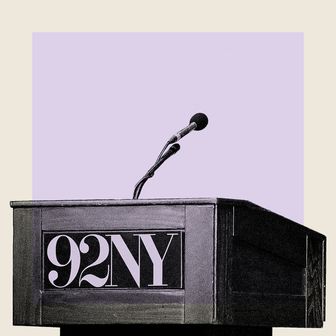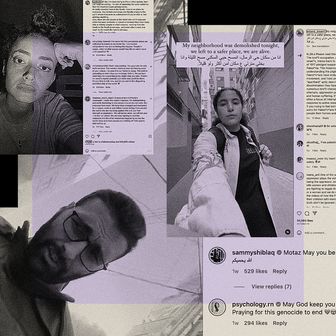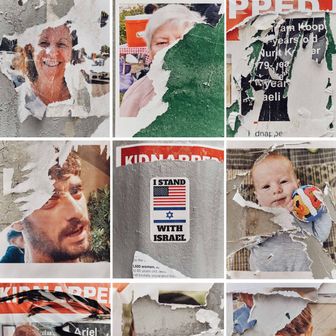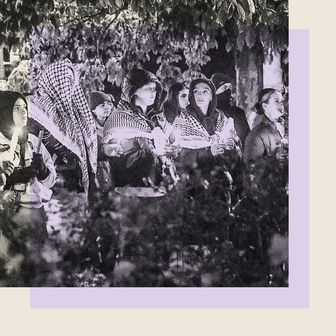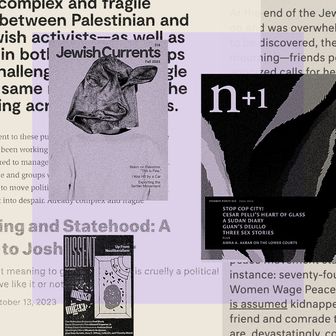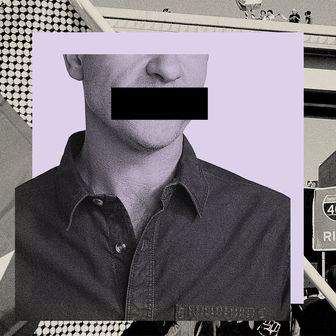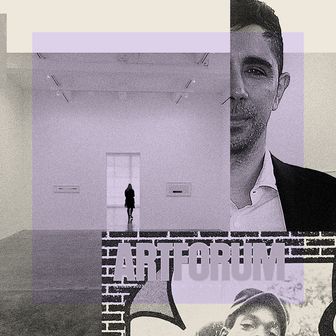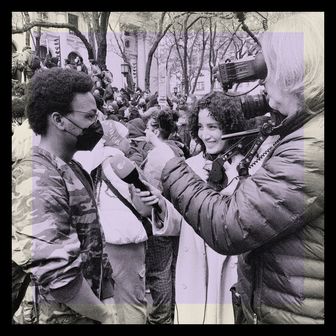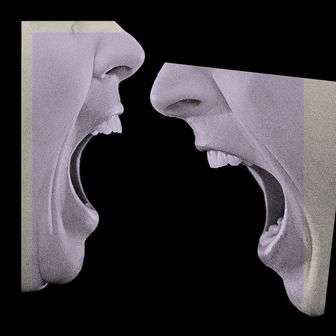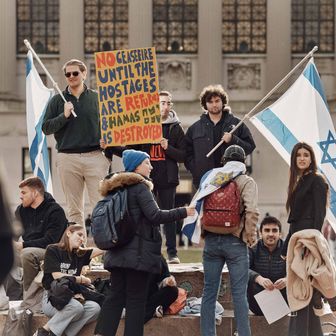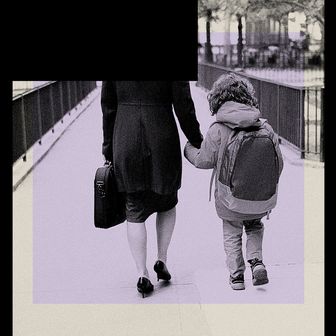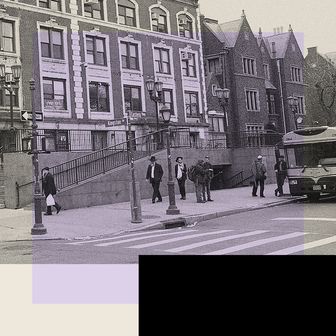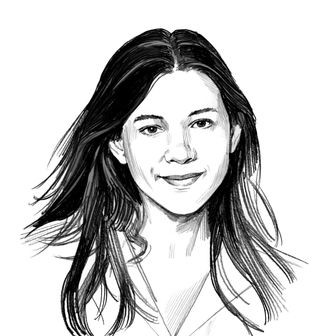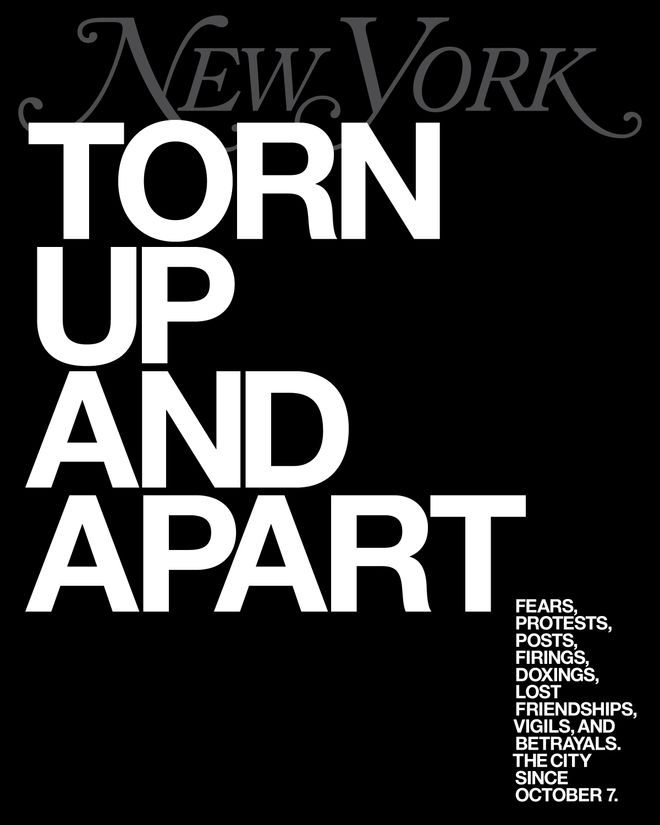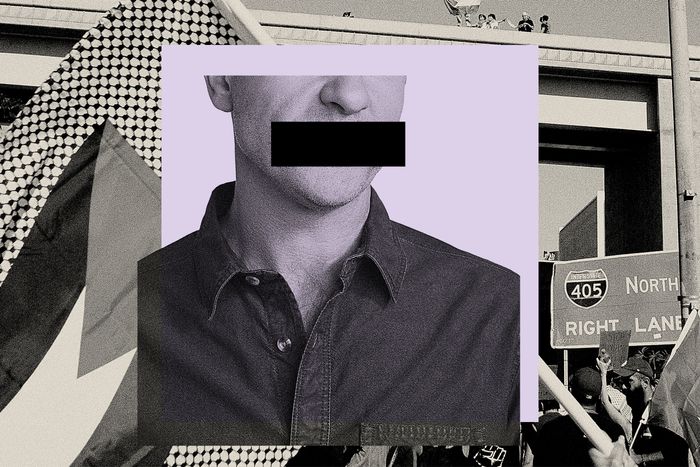
An actor and a showrunner on the politics of speaking out about Israel and Palestine in Hollywood.
A Middle Eastern Actor
I have played Palestinians, Israelis, Iraqis, Afghans — every version of that you can imagine. I once played a Palestinian character, and someone asked me if I “related to my character,” who was a freedom fighter. My job is to relate to the character I’m playing, so I replied, “I don’t believe in violence. I’m a pacifist. But I do relate to my character because he has gone through trauma and he’s trying his best outside of the violence. I can understand and empathize with his POV.” And the conversation erupted into me being called a Nazi. I get emotional about it because I grew up in a house of immigrants that cared for everyone in our town, especially our Jewish neighbors. I was like, Oh, fuck! People are thinking this is antisemitism and not anticolonialism.
I do feel there’s pressure on me as a MENA actor in Hollywood. I’m selective about how I post online. When the attack happened, I immediately put out posts with regard to how fucking disgusting Hamas is, because it is. And immediately, the Middle Eastern community, which is not a monolith, jumped on me. Like, “What about Palestinians? I see your true colors.” When I post things that focus on innocent children and good people in Gaza who are just trying to survive, people comment, “What about the Israelis who were kidnapped?”
Cover Story
What happened to Maha Dakhil, the CAA agent who lost her leadership role for calling the war a “genocide,” scared the shit out of us. I’m very careful not to use words like genocide, occupation, colonialism, open-air prisons — despite believing they do accurately describe what’s happening in Gaza. Those put a target on your back. I also don’t use the word unprovoked. A lot of people say October 7 was “unprovoked.” Well, it’s a massive chicken-and-egg situation, this back-and-forth. Also, I didn’t know the word cease-fire would be such a problem! I would hope we don’t want wars!
Conversations about this in Hollywood are always backdoor. I could be having a conversation with another Middle Easterner, and they’ll say, “I can’t believe that person signed the cease-fire letter. That’s going to be the end of their career.” It’s all happening secretively, in whispers, because everyone’s afraid. I lost a lot of followers for posting in solidarity with Palestine. A lot of people in the industry are attending protests in masks, to not be seen or photographed, because there’s a fear of retaliation.
Three different friends, other Middle Eastern people, told me, “Be careful of what you say. We still need you.” At first, I told everyone to relax, but there is a fear there. I don’t think that there’s a literal blacklist, like an image out of Old Hollywood. But I imagine I have already lost opportunities from being vocal. My agents are probably nervous about me speaking out about Palestine. But I think they also know you shouldn’t tell somebody to not speak out about something they feel is unjust.
A Jewish Showrunner
I find it hard to articulate a singular conversation in Hollywood right now. But in the immediate wake of the initial attacks, all people who identified as Jewish came together and were like, “How are you doing?” “How are you feeling?” And “I’m scared.”
The picket lines would have been a natural place to process all of this. But the writers’ strike ended right before the attacks happened. Online discourse happened so quickly. The equivocating was instantaneous. Everyone was trying to find comparisons. What if First Nations people came into your backyard and started massacring you because you’re living on stolen land? These are not accurate comparisons. When we talk about war, and the things you are allowed to do and not allowed to do, I thought we had agreed ethically and morally that you’re not allowed to kidnap someone. And it turns out no such agreement was in place.
I used to post on Instagram a lot. It’s the only social media I use. And then I was like, I have an Instagram problem. I’m looking at this too much, and nobody cares what I think. So my posting became sporadic. After the attack, I was seeing what was happening on Instagram and to the Amy Schumers of the world. And then there’s all of these incredible activists I follow, particularly inside First Nations communities, the Latin community, mostly the Black community. Although some of the things they’re saying are upsetting to me, they’re also landing and making me think. They made me go, Do I have this fucking wrong? Or is this antisemitic? I was in a broad state of confusion.
I thought there was nothing I had to add to this conversation, where others are more qualified to say something. And then a friend of mine, who has a lot of family in Israel, reached out and said, “We’re trying to keep the hostages front of mind because they’re getting mentioned less and less in the media. This is not part of some broad political movement. We need to put faces and identities to these people who have been separated from their families. So we’re reaching out to prominent Jews, and each of them is going to get one of these hostages. Put it on your Instagram with these hashtags. Would you do that?” I was just like, “Yes.” I felt like I’d be a coward if I didn’t. I also felt like all I’m saying is this person lost their freedom and should be released. I’m not making any suggestions as to what the conditions of their release should be. But anything that gets these people back can’t be a bad thing.
My manager, who’s been a family friend for two decades now, called me on the afternoon of the 7th and asked how I was doing. The topic of whether or not I should post never came up. And when I decided to post, I didn’t feel like I needed permission. The only person I needed to talk to was my wife. My friend told me, “You should turn your comments off when you post this because it’s going to get very bad very fast.” So I turned comments off and posted. Soon, I started getting a disproportionate amount of Instagram alerts that the comments were lighting up on my previous posts. Instead of turning off comments on all of my previous posts, I started reading. It was all about how Jews are colonizers and this hostage has blood on his hands because he was living on stolen land.
I was like, Oh, shit. I mean, I’ve been to Israel, but I was there for two weeks. What do I know? I thought there was no way to win here, but at the very least I needed to make another post that spoke specifically to what bothers me most about the entire conflict, which is the disproportionate response from Israel — its killing of innocent civilians in Gaza as a response to what happened on the 7th. I tried not to use the words I find the most inflammatory, like genocide. I didn’t use emotionally powerful images of children covered in ash and soot. And I tried to speak from the most personal place I could and leave my comments on. Through an arrogant, self-serving lens, I thought this post would be more helpful than hurtful. I did not read many of the comments. In the few I did, it became clear there was no way I could convey the breadth of my feelings and the inherent paradoxes therein without upsetting people.
This is a conversation that requires a lot of nuance and curiosity, and curiosity is the one thing I’m seeing demonstrated the least. A month before the 7th, it felt like all of the liberal Jews in Hollywood I was talking to were on the same page, that Netanyahu and the disempowering of the judiciary were really bad. But after the attacks, some of those same people were like, “Thank God Netanyahu’s in charge because that guy doesn’t give any fucks.” No! He’s the same exact guy that he was when he woke up the morning of October 6. That was not a guy who we wanted to be making unilateral decisions about the cost of human life.
There was all of this pressure inside the writers’ community in the Writers Guild to issue a statement in support of Israel. I didn’t read their silence as not supporting Jews. If they couldn’t reach consensus on the wording of that statement, it was probably best for them not to say anything at all. As for other letters being passed around Hollywood, my inbox will get four different forwards, like, “Hey, we’re all signing this thing. If you want to sign it, put your name on the bottom of this email and then forward it to this address.” The intention behind these letters is “Secure all the heavyweights.” The way it gets reported out is, like, “George Clooney and Meryl Streep fire off letter to SAG.” So in the back of your brain, you’re always thinking, God forbid I’m one of the five most important people who sign this thing and then it seems like I wrote it. The five most clickable names who signed the letter, never the ones who wrote it. My parents told me, “Never sign a letter you didn’t write.” You don’t get to say when you sign, “Well, I agree with 80 percent of the letter, but not this 20 percent.” You have to stand by it. But if you don’t sign it, then it’s like, “So you don’t support the cease-fire?” I don’t work for the State Department. You think Benjamin Netanyahu is going to see the cease-fire letter and go, “Holy shit! I just got this letter from Hollywood!” No. It’s more about covering your own ass or getting attention if you have something to say.


